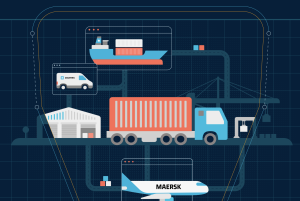 When local government is judged, the public evaluates the functioning of sanitation, water, collection of waste, traffic lights, solid waste and cleanliness, as those are the fundamental issues a local government ought to do.
When local government is judged, the public evaluates the functioning of sanitation, water, collection of waste, traffic lights, solid waste and cleanliness, as those are the fundamental issues a local government ought to do.
However, behind the scenes, an area receiving a great deal of municipal attention is the need to develop the capability and capacity of suppliers, which is inextricably linked to a reliable and continual supply of municipal services.
SmartProcurement spoke to Xolile George, CEO of the South African Local Government Association (SALGA) to find out how the municipal sector can leverage its R340-billion annual spend to drive efficiencies and better empower SMEs.
“At a national level there is a range of players such as small development agencies and national funded agencies, but the municipality’s priority in terms of its own economic sector strategy is to identify small development players and design a strategy of empowering them across all sectors of its own municipal offerings, whether roads, maintenance or electricity.”
“There is no need for government to continually target established suppliers for everything. Local government has a role to play in developing small enterprises, using the budget at its disposal to drive expenditure,” says George.
Johannesburg, for example, has a R60-billion budget. Where small players can execute certain roles, such as building a tar road or purifying water, allow them to participate.
Annually, municipalities invite SMEs to bid on municipal tenders. If a contracted SME is on tier one in terms of what it has been contracted for, government has a role to play, but is not obligated, to graduate the SME to tier two and beyond.
Analysing the value chain for Enterprise Development (ED) opportunities
As an example, for SMEs involved in the water value chain (be it raw sourcing, filtration, treatment of water, distribution of water or reticulation of water), municipalities will look out for opportunities, from collecting water from the source, holding it in reservoirs, distributing it to suburbs, to reticulating it to pipes in homes and providing support.
If a specific SME does not perform as stipulated in performance criteria, then municipalities create space for the SME to apply corrective measures. If the SME fails to perform certain duties or meet the standards set by the municipality the supplier will be blacklisted or given an appropriate penalty to effect corrective measures. This kind of discipline has the potential to build cadetship of young entrepreneurs that can be plugged into the economic ecosystems of the area.
Category management leading to effective ED targeting
Local government consciously targets roughly 30% of the government’s budget towards ED.
SALGA acknowledges that a conscious strategy that prioritises small and medium business will remain on the fringes if government does not create enablers that will empower SMEs.
Furthermore, government must be fair when dealing with SMEs – if a small supplier is contracted to do a certain job, they will be paid the agreed amount promptly as per the contract.
As SALGA expands its pool of innovative approaches to drive development goals across the segments of operation of municipalities it needs to ensure that existing regulatory mechanisms are complied with. When it comes to preferential procurement, BID committees and tendering processes, government and SMEs have to be on the same level; government does not want to fall foul of the regulatory regime.
Of South Africa’s R1.3-trillion budget, SALGA promotes innovative procurement practices through the municipality sector’s R340-billion, empowering it to do a great deal to develop SMEs in the municipal sector. Local government has to ensure that it contributes to economic development and builds entrepreneurs; from the perspective of SMEs more business will mean more cash injection, recognition and establishment in the business industry.
Consequently, government must allow innovation because it will provide better results.


























